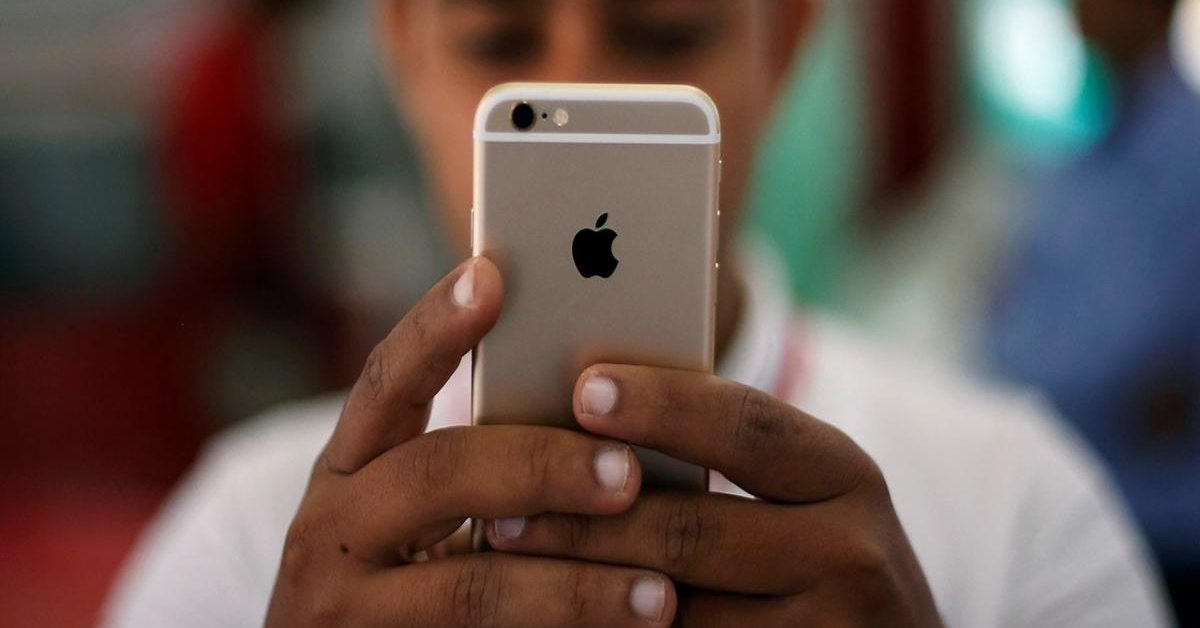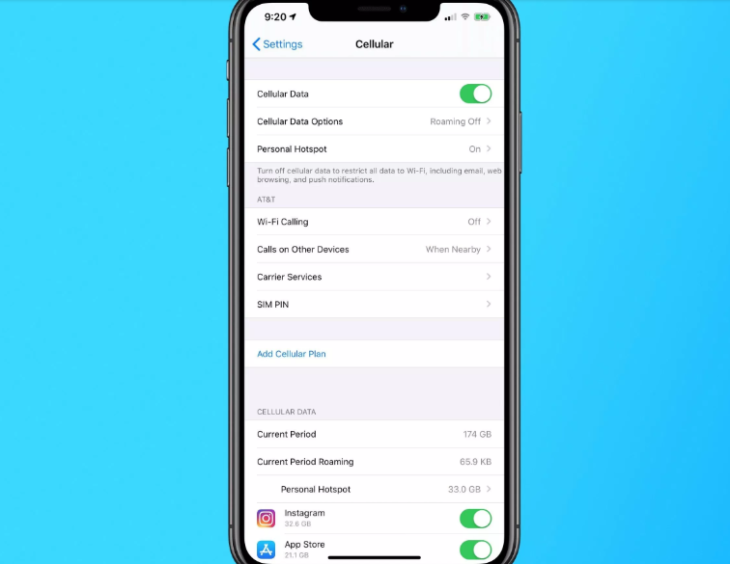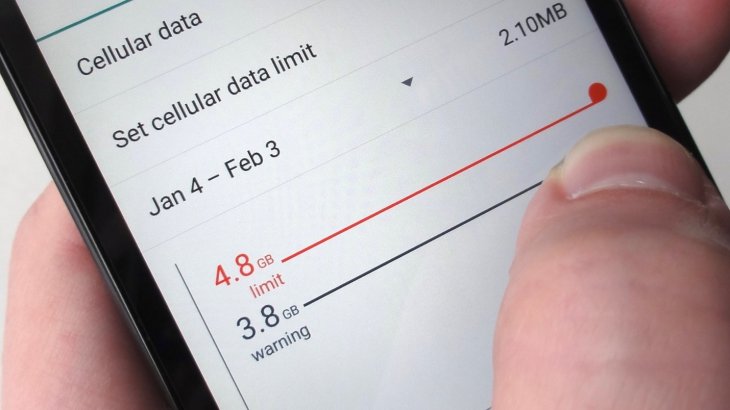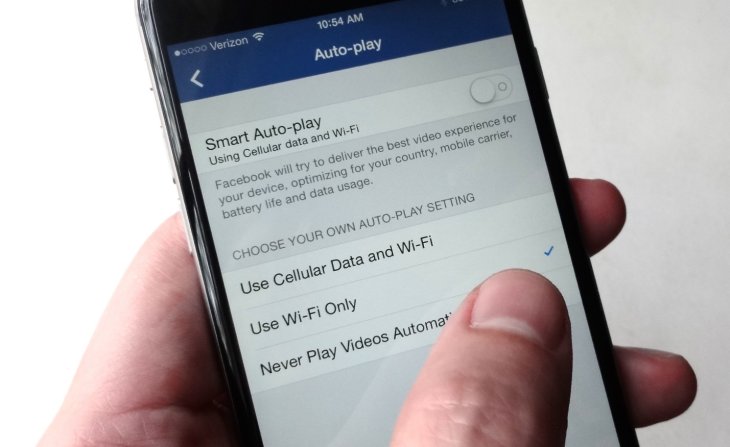How To Track Your Cellular Data Use On iOS Devices
Vaibhav Kapadia - Sep 04, 2019

Since data is never truly unlimited, here are some tricks for iOS devices to limit cellular data usage and avoid paying for overage fees
- What Is Low Data Mode iPhone And Should We Use It?
- Updating iOS 12.1.2 Could Break Messaging, Calling, And Cellular Data
While several carriers are offering unlimited data plans, they are actually limited. IOS users are likely to be asked to pay for more data or be throttled whenever hitting particular data use. Or you only pay for a specific amount of data and do not want to go over that limit.
Either way, you should acknowledge some iOS tricks that allow you to track and reduce your cellular data use.
How To Track Data Use On iPhone
Firstly, and most importantly, ask yourself the amount of data that you use frequently. It is easier to track data usage directly from your iPhone than using carriers' tools, as you can see from the picture.

You can find the “Cellular” menu in the Settings app. Here is where you see a breakdown of which apps have consumed data the most. You can even disable data usage with some certain apps. For example, if you find an app that drains your data in spite of rarely using it, you can quickly stop this act by flipping the toggle.
Turn Off Wi-Fi Assist
On iPhone or iPad, Wi-Fi Assist has both advantages as well as disadvantages. This feature is said to automatically change to cellular data whenever there is a poor Wi-Fi connection. Even when you are using Wi-Fi, the Assist is still functioning and consuming your cellular data.
You can disable this feature easily following these steps: open the Settings app, choose “Cellular,” go to the bottom and turn off the Wi-Fi Assist toggle. Here you would also see the amount of Wi-Fi Assist used data.
Completely Stop Some Particular Features Using Your Cellular Data
Another easy yet effective way to cut down on your amount of cellular data is to stop traditional features that have large data usage functioning unless the device is connecting to Wi-Fi.

To turn off iCloud Drive, go to Settings, then open “Cellular.” You need to find the “iCloud Drive” and disable it.
You might also want to disable App Store downloads. Let’s scroll down to “iTunes and App Store” in Settings. You are likely to find the heading named “Cellular Data.” After that, turn off the “Automatic Downloads,” choose “App Downloads,” as well as “Always Ask.”
Shutting down the Apple Music streaming would help to solve the data problem. Find “Music” in Settings, then find “Cellular Data.” You can prevent streaming or downloading, or just simply turn off the Cellular Data.
Sometimes Photos burn our iPhone data continuously, and we need to disable it. In the Settings app, you will scroll down to find “Photos.” Stop the feature from using data completely leads to restricting updates to Wi-Fi, including iCloud Photos and Shared Albums. Also, turn “Unlimited Updates” off.
Cutting down on Background App Refresh data is one effective solution to save your data usage. In Settings, look for “General,” then “Background App Refresh.” You have two options: to limit the feature to only when there is a Wi-Fi connection and to disable the feature for either different apps or every app in every situation.

Disable The iPhone Cellular Data Completely
If you want to guarantee that you don’t have to pay for overage fees as you have consumed all of the cellular data for a month, completely disable the function is the best choice. To do it, simply go to Settings and choose “Cellular,” flipping the toggle beside “Cellular Data.”
Conclusion
There are more solutions to reduce iOS data usage such as listening to offline music after downloading it, saving articles for later read by Reading List feature in Safari. Also, remember to stream video or do other highly intense things only when there is a Wi-Fi connection.
Featured Stories

How To - Jul 25, 2025
Savant - Ascent REMIX Free Download (v1.2) - Electrifying Twin-Stick Shooter...

How To - Jul 25, 2025
Way of the Hunter Free Download (v1.23a) - The Ultimate Realistic Hunting...

How To - Jun 12, 2025
The Legend of Tianding Free Download (v1.01) - Become Taiwan's Legendary Outlaw

Features - Jun 11, 2025
Best VPN for PUBG Mobile 2025: Lower Ping & Regional Access Guide

How To - Jun 08, 2025
Telepath Tactics Liberated Free Download (v1.0.57) – The Ultimate Tactical RPG...

How To - Jun 07, 2025
The Mystery of Woolley Mountain Free Download – Whimsical Adventure Game

How To - Jun 07, 2025
We Need to Go Deeper – Complete Edition Free Download (v1.6.5)

How To - Jun 06, 2025
Pharaoh: A New Era Free Download – Build an Ancient Egyptian Empire

How To - Jun 04, 2025
Stardew Valley Free Download (v1.5.6) - Build Your Dream Farm

How To - Jun 04, 2025
RoboCop: Rogue City Free Download (v1.0.1.7 & ALL DLC) - Become the Legendary...
Read more

Mobile- Feb 16, 2026
Xiaomi Launches Affordable Tracker to Compete with Apple's AirTag
For users tired of ecosystem lock-in or high prices, the Xiaomi Tag represents a compelling, no-frills option that delivers core functionality at a fraction of the cost.

Mobile- Feb 17, 2026
Anticipating the Samsung Galaxy S26 and S26+: Key Rumors and Specs
The Samsung Galaxy S26 series is on the horizon, sparking excitement among tech enthusiasts.

ICT News- Feb 18, 2026
Google's Project Toscana: Elevating Pixel Face Unlock to Rival Apple's Face ID
As the smartphone landscape evolves, Google's push toward superior face unlock technology underscores its ambition to close the gap with Apple in user security and convenience.
Comments
Sort by Newest | Popular